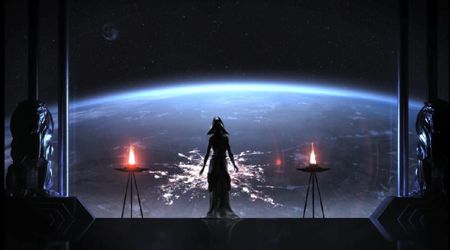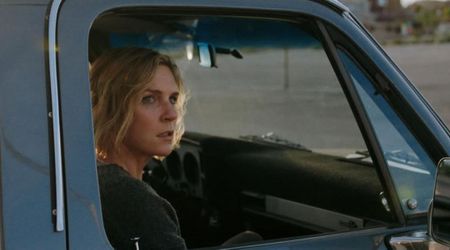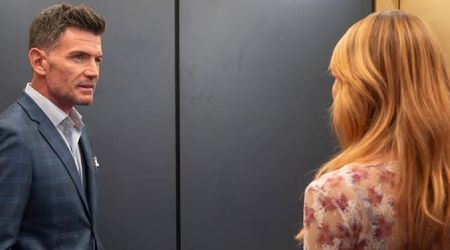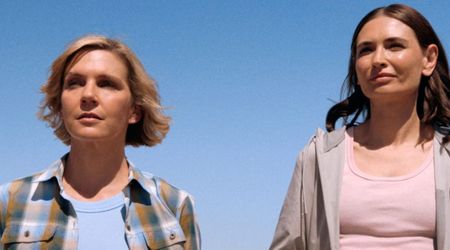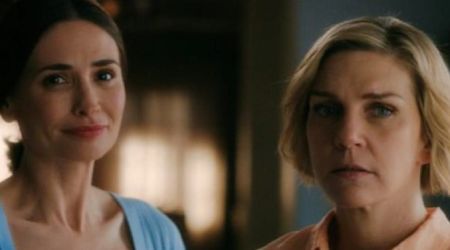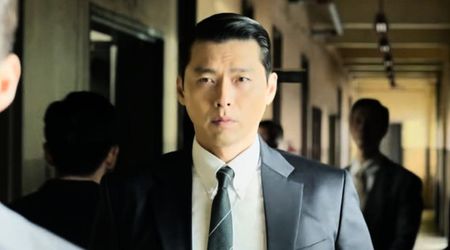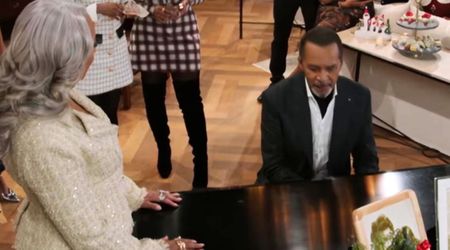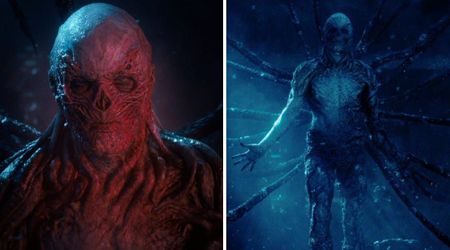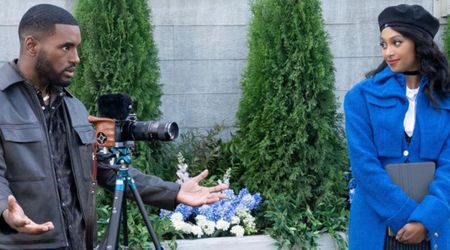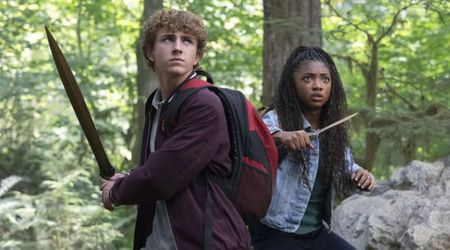'The Morning Show': Jennifer Aniston and Steve Carrell shed their 'likable' personas to tell this #MeToo story

After a thrilling and tense last episode, 'The Morning Show' wrapped up its debut season as the players revealed their cards. For once, the House, aka the old boy's club represented by UBA head President Fred Micklen (Tom Irwin), did not win.
In the last few moments, the show's finale lit the match for the tinderbox it has been building since episode 1. It is thrilling, exhilarating, satisfying - everything that good TV is about. While critics have been saying 'The Morning Show' is a good-looking show with no meat, we beg to differ.
It is a courageous series about the #MeToo movement that dares to look at the complicity of women who are close to predatory men in power and benefit from turning a blind eye. It also interrogates notions about masculinity and seduction harbored by so-called "charming men" -- ideas that continue to muddy the waters around consent.
Till now, we have been fed righteous stories around #MeToo with clear villains and heroes. The villain is usually a Harvey Weinstein-like unattractive man with power, who wields his clout to sexually assault women. The heroine is usually a less powerful, beautiful woman who succumbs because she wants to protect her career.
But within this cookie-cutter narrative, we have not given thought to handsome, charismatic men whose behavior is typified in that sexist song 'Blurred Lines'; the ones who think they are "a catch" and see their own predatory behavior as "seduction". We also don't think of the attractive, usually white cis, women who have managed to curry favor with the old boy's club -- the women who have benefitted from the system that keeps most women, especially women of color like Hannah (Gugu Mbatha-Raw), out of positions of power.
For once, it concentrates on the accumulated pain of the victim rather than going for the easy, triumphant narrative of a "survivor". The sad truth is that the ones who "survive" often have the cushioning of class, race, power or money to see them through as compared to the ones who don't survive like Hannah. Gugu Mbatha-Raw is luminous as Hannah laying bare the scars of being placed in a position where she has to compromise and with no money or power to get justice. Similarly, Reese Witherspoon is also instantly sympathetic as a character, representing the new wave of angry young women who are no longer ok with the status quo and finally have the words and the voice to be heard.
However, this particular telling, this particular show would not have been possible without Jennifer Aniston and Steve Carrell. By bartering the "likeability" of their brand personas, they have helped tell a difficult story about complicity and power equations around the #MeToo movement. Within the show, Carell is Mitch Kessler, the slightly older man who is charming with obvious screen presence and charisma. He is the anchor "making 20 million a year". The world is his oyster and every door is wide open for him and he can "seduce" any woman he wants. Carell as Mitch Kessler shows how "likable" guys (like him) have wielded an unimaginable amount of power that gave them a lifelong free pass on nearly everything, except outright rape and assault.
The "Mitch Kesslers" of the world think sexual conquests are always consensual and they refuse to see how power can make women shut up and comply in fear of harming their careers. They also refuse to see themselves as a predator like Weinstein and don't view their conquests as an abuse of power. Since they have always been envied and praised and never censured, the new #Cancel culture that threatens their domains of power and privilege is incomprehensible. Carrell accurately depicts the confusion of men who have grown up with sayings like "boys will be boys" and in a society that is quick to forgive their excesses and enable their "naughty" behavior. To them, being punished for "sexual misconduct" (which takes into account how sexual relations are affected by power equations) is akin to a witchhunt.
Aniston has an even more difficult job -- portraying the conventionally attractive, white cis woman, Alex, who has managed to break the glass ceiling thanks to the patronage of the old boys' club. Part of keeping that patronage and staying in a position of power means turning a blind eye to sexual misconduct and going along with snide jokes about "women who sleep around". She is both a victim and a beneficiary of patriarchal structures of power. For a woman to get a seat at the table is difficult, entailing sacrifices in the personal sphere. This makes it all the more difficult for her to let it all go for a "cause". She sees herself as merely ignorant rather than being complicit in the system that enables the "culture of silence". For many "likeable" white women like Aniston who have been dubbed "America's Sweethearts", it is a complicity that is difficult to face up too. It is why white feminism has always been conciliatory and "soft" compared to the "angry" and confrontational feminism of women of color. Aniston's portrayal brings this complicity to light as she asks women like her to take responsibility for how they have enabled men with power in their circles of friends and colleagues.

